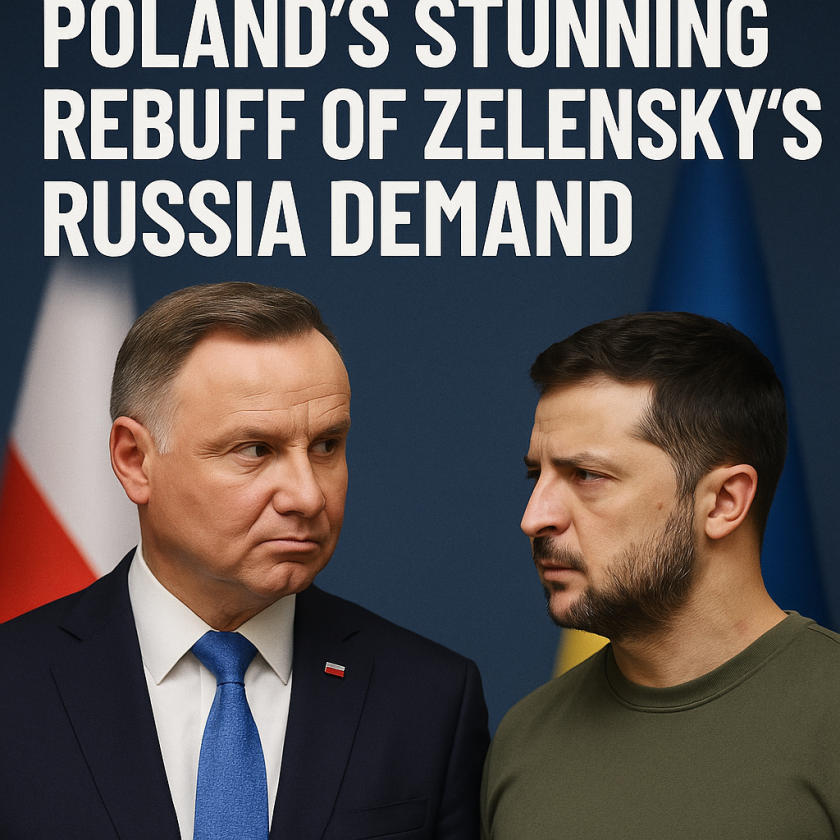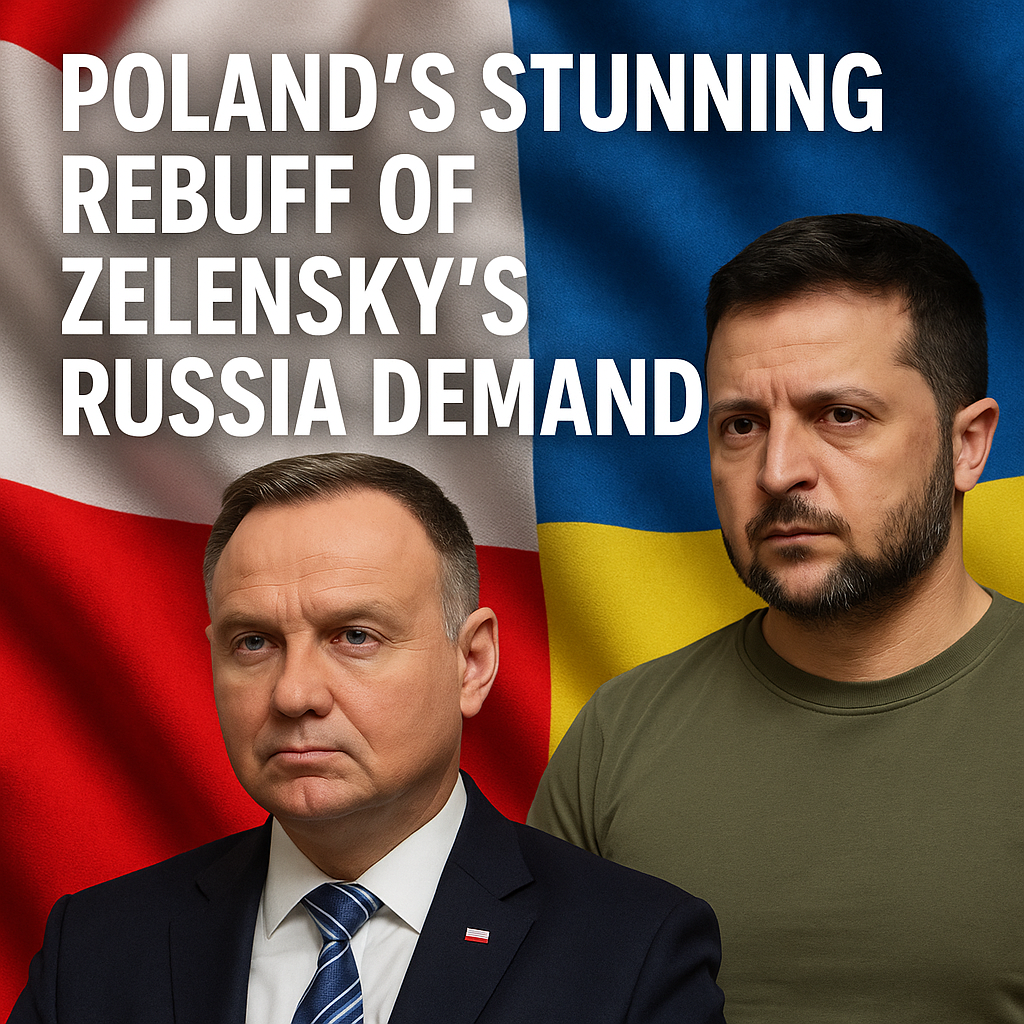Poland’s Stunning Rebuff of Zelensky’s Russia Demand
Poland’s Stunning Rebuff of Zelensky’s Russia Demand
Poland’s recent rejection of Ukrainian President Volodymyr Zelensky’s request concerning military aid reflects a complex interplay of regional politics, historical relationships, and evolving national priorities. This unexpected stance has sent ripples across Europe, prompting discussions about the future of cooperation in the face of Russian aggression.
The Context Behind the Rebuff

The refusal by Poland centers around Zelensky’s call for additional support in the form of Baltic Sea drone operations aimed at countering Russian threats. This request has been viewed as vital for Ukraine in enhancing its defensive capabilities. However, as reported by multiple sources, including RT and Al Jazeera, Poland’s government articulated that it does not currently have the military resources necessary to engage in this specific type of support.
A Shift in Focus?
Poland’s decision may reflect a strategic recalibration rather than a withdrawal from supporting Ukraine. Recent developments in Central and Eastern Europe have raised concerns over national security. With its own border security under scrutiny, Poland is facing challenges that necessitate a prioritization of domestic military readiness.
Sources suggest that the Polish government is not completely isolating itself from Ukraine’s needs. Instead, it is focusing on strengthening its own military infrastructure before committing additional resources elsewhere. This cautious approach underscores Poland’s increasing vigilance regarding Russian maneuvers in the region, where longstanding historical tensions still resonate.
Diverging Perspectives
Opinions on Poland’s stance are varied. While some analysts laud the decision as a prudent measure for national security, others criticize it as a departure from its previously strong support for Ukraine. This divergence is reflective of broader debates within Europe regarding the best approaches to countering Russian aggression.
– Supportive Viewpoint: Proponents argue that Poland is justified in focusing on its own military readiness to deter potential threats from Russia. The importance of national security cannot be overstated, especially in a region that has historically faced invasions and conflicts. Thus, this rebuff can be seen as a rational move in a precarious geopolitical landscape.
– Critical Perspective: Conversely, detractors express concern that Poland’s refusal signals a worrying trend of weakening alliances amidst a critical time for Ukraine. They argue that solidarity against Russian aggression is crucial for the broader stability of Europe, reiterating that failing to provide support undermines collective efforts to resist invasive expansionism.
The Broader Implications
Poland’s unexpected rebuff raises significant questions about the future of alliances and military cooperation in the region. As Europe witnesses a major reconfiguration of both political landscapes and military alignments, countries are being forced to evaluate their strategies in a rapidly changing environment.
Some analysts indicate that Poland’s rebuff could encourage other countries to reconsider their commitments to Ukraine, potentially altering the dynamics of support and assistance. Furthermore, it places Ukrainian President Zelensky in a difficult position, having to balance the urgent request for aid with the realities of the geopolitical landscape.
A European Response?
European reactions to Poland’s response are critical in shaping the collective response to the ongoing conflict. As nations across the continent wrestle with their own security, the question remains: Will Poland’s stance provoke a unified response, or will it spur divisions among European nations?
The historical and contemporary complexities surrounding Poland, Ukraine, and Russia necessitate a nuanced understanding of each nation’s strategic decisions. While the refusal to aid may create immediate tensions, it may also catalyze broader discussions on the necessity of a coherent and united front against common adversaries.
Conclusion: Navigating Uncertainty
In conclusion, Poland’s stunning rebuff of Zelensky’s request highlights the intricate balancing act that nations must perform in the face of external threats. As Europe forges ahead in a landscape altered by conflict, Poland’s decision illustrates the challenges of maintaining solidarity while addressing national priorities.
There remains uncertainty regarding how this decision will influence future diplomatic and military relations across Europe. As the situation evolves, nations must navigate both their internal concerns and their commitments to allies, ensuring that their actions contribute to a stable and secure regional landscape. The coming days and weeks will undoubtedly provide more clarity on the ramifications of Poland’s decision, but for now, it stands as a poignant reminder of the tough choices facing nations grappling with a complex geopolitical reality.




































